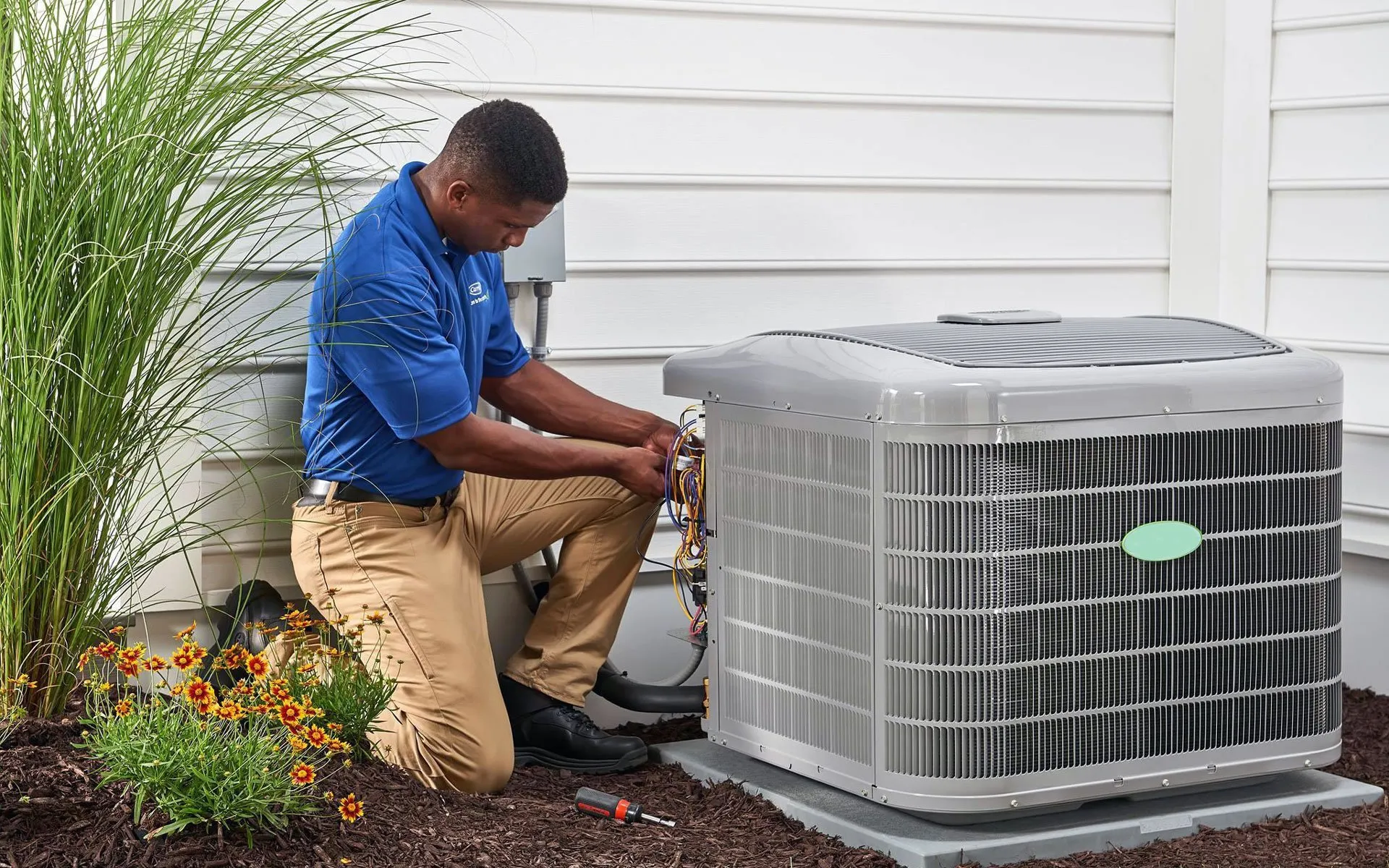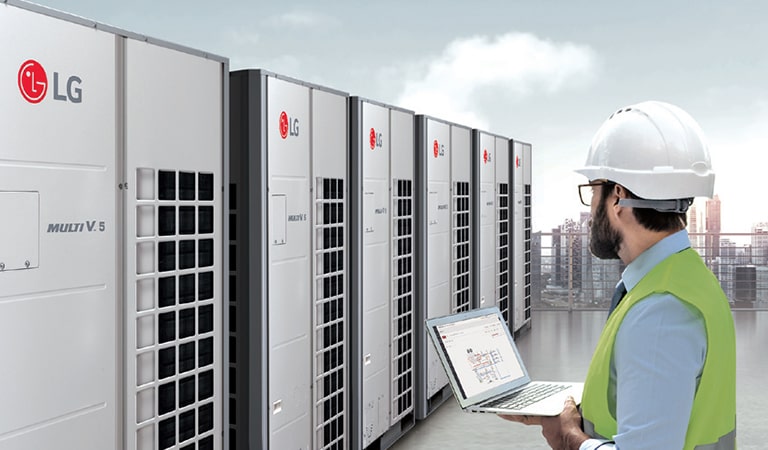Top Perks of Timely heat pump replacement ooltewah tn
Top Perks of Timely heat pump replacement ooltewah tn
Blog Article
Picking In Between a Warmth Pump and Heater: Secret Considerations for Your A/c Requirements
When examining heating options for HVAC requires, the decision in between a heatpump and a heater can be intricate. Each system uses distinctive benefits tailored to details environments and power effectiveness goals. Recognizing these distinctions is crucial for making an educated choice. Trick aspects such as installation costs and ecological impact even more make complex the choice process. Which option truly straightens with one's comfort and sustainability preferences? The adhering to areas will check out these considerations carefully.
Recognizing Warm Pumps: Exactly How They Work and Their Benefits
While many home owners take into consideration various home heating choices, recognizing exactly how warmth pumps function and their benefits can significantly affect their choice. Heatpump operate by transferring warmth rather than creating it. In the winter, they draw out heat from the outside air or ground and move it inside, while in the summer, they reverse this procedure, cooling down the home by getting rid of warmth outside. This twin functionality makes them versatile for year-round climate control.One of the main advantages of heat pumps is their power performance. They use significantly much less electricity compared to standard heater, possibly resulting in lower energy costs (furnace replacement). In addition, heatpump have a smaller sized carbon impact, making them an eco-friendly choice. They likewise need much less upkeep than standard systems, adding to lasting expense savings. In general, comprehending the mechanics and benefits of warm pumps can help property owners make educated choices concerning their heating and cooling needs
Exploring Heating Systems: Types, Operation, and Advantages
Heaters are available in different kinds, including gas, electrical, and oil designs, each with unique functional mechanisms. Understanding these distinctions is important, as they impact efficiency and home heating efficiency. Additionally, furnaces supply many benefits, such as regular warm result and dependability in colder environments.
Kinds of Heating systems
Heating unit can differ considerably in design and procedure, with heaters being a prominent selection amongst property owners. There are several kinds of heaters, each utilizing various fuel resources and technologies. Gas heating systems are typical, leveraging natural gas to produce warm successfully. Electric heaters, on the other hand, make use of electric resistance to generate warmth, frequently favored for their straightforward installment. Oil furnaces, while much less common, are reliable in areas with minimal gas gain access to (furnace replacement). Additionally, condensing heaters maximize energy performance by catching and recycling exhaust gases. Each type operates through a system of warm exchangers and ductwork to disperse cozy air throughout a home. Understanding the distinctions in between these heater types is necessary for educated HVAC decisions
Advantages of Furnaces
For home owners seeking trusted warmth during cold months, the benefits of heating systems are substantial. Furnaces offer consistent heating, making sure also temperature levels throughout the home. They are particularly efficient in severe cold, commonly surpassing warm pumps in icy problems. Numerous kinds, including gas, electric, and oil furnaces, use versatility to fulfill diverse requirements and preferences.Furnaces also have a tendency to have lower preliminary setup prices contrasted to heat pumps, making them a more easily accessible alternative for several. Their robust design contributes to a longer life-span, with lots of units lasting over 15 years with proper maintenance. Additionally, modern heaters are frequently geared up with advanced modern technology for improved effectiveness, which can lead to lowered energy costs. Generally, heating systems continue to be a reputable option for efficient home heating.

Power Efficiency: Contrasting Heat Pumps and Furnaces
When contrasting power efficiency between heat pumps and heating systems, the Seasonal Power Efficiency Ratio (SEER) plays a necessary duty in establishing performance. Furthermore, a functional price analysis exposes the lasting economic ramifications of each system. Comprehending these factors can direct homeowners in making educated decisions concerning their heating options.
Seasonal Energy Effectiveness Ratio
Power effectiveness plays a crucial role in the decision-making process in between heat pumps and heaters, particularly when taking into consideration the Seasonal Energy Efficiency Proportion (SEER) This statistics actions the cooling efficiency of warm pumps over an entire air conditioning period, offering a standard way to review performance. Greater SEER rankings indicate better energy effectiveness, translating to lower energy consumption and decreased energy costs. On the other hand, furnaces are generally evaluated utilizing the Annual Fuel Utilization Performance (AFUE) score, which reflects home heating efficiency. When contrasting these two systems, house owners need to prioritize SEER scores for heatpump, as they directly influence overall energy savings and ecological sustainability. A thorough understanding of SEER can significantly affect the long-term satisfaction and cost-effectiveness of the chosen HVAC solution.
Operational Expense Analysis
Understanding the functional costs connected with warm pumps and furnaces is crucial for homeowners reviewing their choices. Heatpump typically supply greater energy efficiency, converting electrical energy right into heat with marginal waste. This results in reduced month-to-month utility bills, specifically in moderate environments. On the other hand, conventional furnaces, particularly gas models, may have reduced in advance costs yet can sustain greater functional expenses gradually as a result of fuel prices and effectiveness ratings.Moreover, heatpump can function as both home heating and cooling down systems, potentially minimizing the need for different HVAC systems. While first investments for warm pumps might be greater, their long-lasting cost savings in power performance can make them an extra affordable selection for many homes. Mindful evaluation of local energy rates is necessary to identify the finest alternative.
Installation Costs: What to Expect for Each Heating Unit
Installment prices for furnace can vary considerably in between warm pumps and heaters, influencing house owners' decisions. Heatpump typically have higher upfront installation costs, generally ranging from $3,500 to $8,000, relying on the system dimension and intricacy of installment. This consists of the outside unit, indoor handling system, and necessary ductwork modifications. Alternatively, heaters have a tendency to have reduced preliminary prices, averaging in between $2,500 and $6,000, which can be appealing for budget-conscious home owners. Setup expenses can increase if considerable ductwork is required.Moreover, the option of fuel kind for heating systems-- all-natural gas, gas, or electric-- can also affect installation prices. While heatpump offer power performance, their initial financial investment may prevent some customers. Ultimately, evaluating installment costs alongside long-term cost savings and efficiency will certainly aid house owners in making informed choices concerning their heating unit.
Environment Considerations: Which System Carries Out Much Better in Your Area
Exactly how do environment conditions affect the effectiveness of heater? The performance of heatpump and furnaces can differ significantly relying on the local environment. In moderate environments, heat pumps stand out by effectively transferring warmth from the outside air, making them an energy-saving choice. Their performance diminishes in extremely cool temperature levels, where they might have a hard time to extract enough heat. Conversely, heaters, especially gas designs, give trustworthy and constant heat regardless of outside problems, making them more effective in chillier regions.In locations that experience milder winter seasons, warm pumps can run effectively year-round, offering both heating & cooling. On the other hand, regions with severe wintertimes often gain from the toughness of heaters. Inevitably, recognizing the local environment is important when choosing between a warmth pump and a furnace, as it directly influences their functional efficiency and overall performance.
Maintenance Requirements: Long-Term Look After Heat Pumps vs. Furnaces
While both warmth pumps and heaters call for normal maintenance to ensure peak performance, their particular needs and treatment routines differ significantly. Furnaces normally require less frequent interest, with yearly inspections sufficing to inspect for gas leakages, tidy filters, and assess general capability. Their easier style commonly enables simple repairs.In contrast, heatpump require biannual upkeep because of their dual duty in home heating and air conditioning. This includes cleansing coils, checking refrigerant levels, and making certain that both the outside and indoor units operate at their best. In addition, heatpump maintenance typically includes more intricate elements, making expert servicing essential.Neglecting maintenance can bring about diminished performance and enhanced energy costs for both systems. Inevitably, property owners need to consider these long-term treatment requirements when selecting in between a warm pump and a heating system, as proactive maintenance can extend the life expectancy and performance look at this site of either system considerably.
Environmental Effect: Selecting a Lasting Home Heating Alternative
The environmental effect of heater is a vital analysis for homeowners seeking sustainable choices. Warmth pumps are usually much more energy-efficient than traditional heating systems, as they move warm instead than generate it, greatly decreasing carbon discharges. By utilizing renewable resource resources, such as air-source or geothermal heatpump, homeowners can even more reduce their ecological footprint.On the various other hand, all-natural gas heating systems discharge greenhouse gases and add to air contamination, though they often provide greater heat output. However, advancements in innovation have actually resulted in the development of high-efficiency heaters that decrease emissions.Ultimately, selecting a heating unit includes considering performance versus environmental influence. House owners are urged to review local power resources and motivations for renewable systems, ensuring a selection that aligns with both individual comfort and environmental obligation. The choice influences not just prompt convenience but likewise lasting sustainability and ecological health.
Often Asked Concerns
How Lengthy Do Warm Pumps and Furnaces Typically Last?
The lifespan of heat pumps normally varies from 15 to two decades, while heating systems can last between 15 to three decades. Regular upkeep substantially affects their durability and efficiency in supplying home heating remedies.
Can I Make Use Of a Warm Pump in Exceptionally Cold Climates?
Heat pumps can run in exceptionally cool climates, however their effectiveness decreases as temperatures get redirected here decrease. In such conditions, supplemental heating resources might be essential to maintain comfortable indoor temperature levels and guarantee peak performance.

What Is the Noise Degree of Warmth Pumps Versus Furnaces?
The sound levels of heatpump and heaters vary considerably. Usually, heatpump run more silently than standard heaters, making them more effective for those conscious appear, while heaters might produce louder functional noises throughout home heating cycles.
Are Heat Pumps Suitable for Both Heating & Cooling?
Heatpump are indeed appropriate for both heating & cooling (heat pump replacement ooltewah tn). They operate by moving heat, giving reliable temperature control year-round, making them a versatile choice for homeowners seeking an all-in-one heating and cooling service
What Dimension Furnace Do I Required for My Home?
Figuring out the appropriate size home heating system for a home needs reviewing elements such as square video, insulation top quality, regional environment, and the home's layout. Consulting an expert can assure a precise analysis and ideal convenience. Warmth pumps commonly provide greater energy performance, converting electric energy into warmth with minimal waste. In moderate environments, warm pumps stand out by successfully transferring warmth from the outside air, making them an energy-saving choice. Alternatively, furnaces, especially gas models, give dependable and regular heat no matter of exterior problems, making them better in chillier regions.In areas that experience milder winters, warm pumps can run properly year-round, giving both heating and cooling. Warm pumps are usually a lot more energy-efficient than traditional heaters, as they move heat instead than create it, greatly reducing carbon you can try here emissions. By making use of sustainable energy sources, such as air-source or geothermal warm pumps, home owners can better decrease their ecological footprint.On the other hand, natural gas furnaces emit greenhouse gases and contribute to air pollution, though they often provide higher heat result.
Report this page